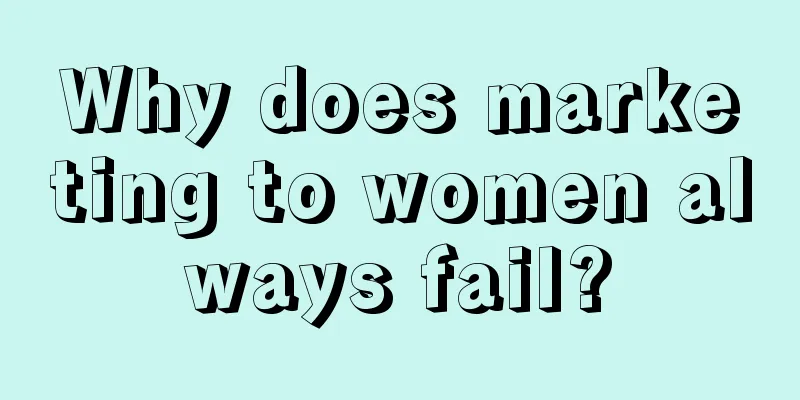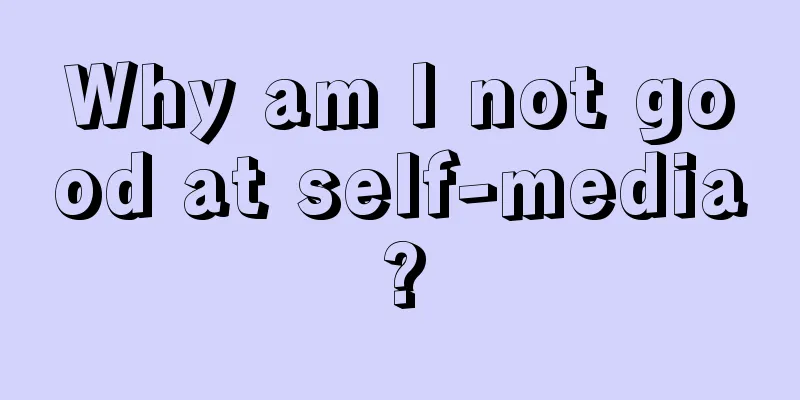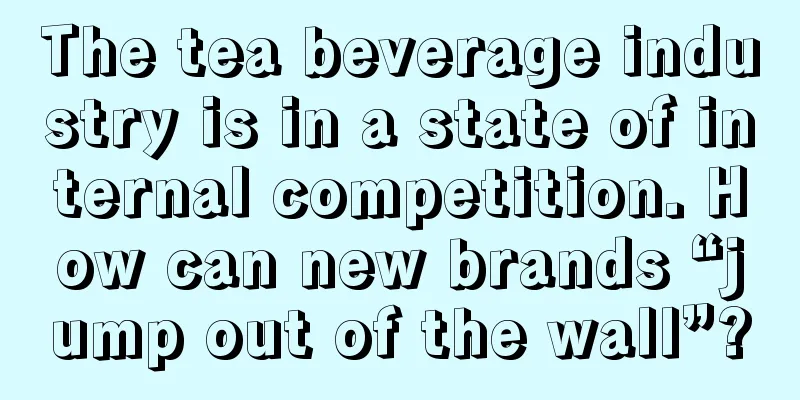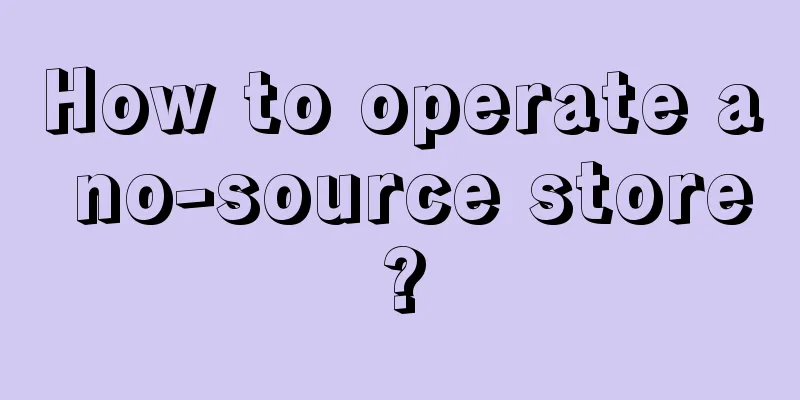Why does marketing to women always fail?

Do not objectify, do not flatter, do not define In recent years, more and more brands have begun to pay attention to female marketing. Indeed, this is a good communication channel to help brands better embrace young consumer groups. For example, Mercedes-Benz's She's Mercedes women's community allows more women to speak out. Another example is SK-II's "Rewrite Destiny" brand slogan, which calls on the public to truly care about the female group. However, in such an environment, there are more and more cases of failure. Whether it is a century-old brand or a new Internet brand, they have all fallen. As a result, a phenomenon trend has emerged, and many brands have begun to hold the mentality of "saving 100% if you don't buy" and dare not touch women's issues. Why does women's marketing always fail? Perhaps we can learn from these cases and let brands truly explore women's issues in depth. 01 Use products to bind womenSome brands' understanding of female marketing is really like that of single-celled organisms. In their view, female marketing is to sell products to the female group. Based on this, their marketing activities all follow this product strategy, turning "female products" into "female necessities". Subconsciously conveying this brand concept, binding the product into an innate part of women. For example, Chanel believes in the idea that "women who don't use perfume have no future." This old concept should have been abandoned long ago, but Chanel still regards it as a golden sentence. It would be strange if such a brand didn't fail. Similarly, JD Beauty wrote on the delivery box, "What's the difference between you and a man without lipstick?", which directly maximized the gender confrontation. In fact, no matter what brand or copywriting it is, the most fundamental reason why they fail and are criticized by the public is that they are built in a context of "should". This kind of context can be seen at any time in life, and is even deeply rooted in our subconscious. For example, women should stay in the kitchen, women should marry a good husband... There was a problem with the brand’s initial setting, which placed women in an incomplete state. Women needed to add certain things to become perfect. If a brand wants to address women's issues, the first thing is to change the context. Women do not need any products to prove themselves. They can be this or not, this is just the way they are. When brands no longer use products to bind women, the lipstick copywriting can be written like this: "You are still beautiful without lipstick." 02 Giving unnecessary functional value to productsThere is a basic FAB rule for copywriting, but many people are not good at writing it this way. When some brands explain the benefits of their products, they often extend them indefinitely. By magnifying the functional value of the product, the problem is also magnified. For example, a decent outfit is called "marriage-friendly", forcibly linking clothes with marriage. In essence, it is objectifying women and promoting the idea of appearance. For example, the slogan used by underwear brand Ubras to promote its products was "My Workplace Life Jacket", and spokesperson Li Dan even wrote the copy "Let women easily win in the workplace." There is no connection between underwear and the workplace, so this wave of actions inevitably makes people feel vulgar and disgusted. From the perspective of copywriting, I may understand that the original intention of the brand is just to use a method to describe the benefits of the product and combine the product with some life scenes. However, this forced functional value can easily mislead the general public and bring a bad viewing experience. I strongly suggest that all brands should not categorize their products randomly, such as classifying underwear as workplace equipment and calling lipstick a male killer... 03 Deliberately pleasing womenEven now, some brands still intentionally or unintentionally belittle women. New feminine terms emerge one after another. All of them are full of prejudice and disrespect. However, belittling women is just an isolated case. More and more brands are paying attention to women's values and discovering their beauty and strength. In such a market, another trend has emerged, where brands deliberately try to please women, and even belittle men in order to please women. For example, a high-heeled shoe brand launched a call on March 8, "On this day, all men's legs should be sawed off by an average of 10cm." Its starting point is "uniform height is fair." The brains of this kind of brand are like they have entered a maze and can't find the way back. It would be strange if it didn't overturn, as it stepped into many pitfalls at once. First of all, this brand subconsciously believes that women wear high heels to cater to the public rather than to pursue their own beauty. Secondly, women are not moved by such calls, but find them ridiculous. What women like is not to be flattered, but true gender equality. And equality is not the so-called same height, but that the value of women's strength can also be seen. In many cases, the essence of flattery is prejudice. And pleasing women by belittling others is absolutely the worst strategy. 04 Defining womenPreviously, Bananain launched an advertising film called "What is the antonym of girl" in an attempt to give its own answer. The reasoning logic is reasonable and well-founded. According to Bananain's purchase data analysis, most of the buyers are women, which means that women have the "right" to determine the family's aesthetics. Since the antonym of beauty is mediocrity, the antonym of girls is those who are accustomed to mediocre aesthetics. "The opposite of a girl is someone who is accustomed to mediocre aesthetics." Its subtext is that girls should pursue refinement and improve their aesthetics in life. This may be the inner pursuit of many people, but it is also contrary to the current situation of many people. Some girls like to be content with mediocrity and like an ordinary lifestyle. There are great potential risks for brands to define women. Because no matter what data we use or what logical reasoning we base it on, the final definition is inaccurate. It only represents a part of the population, not women. But I still admire such brands that have the courage to speak out. They do not stay away just because the topic may turn out to be controversial. Instead, they take the initiative to reach out to the female group and dig out more real and comprehensive content. And in this process, remember to give the right of choice back to women. With a calm attitude and appropriate conversation context, women can pursue refinement or enjoy mediocrity. Don’t objectify women, don’t flatter them, and don’t make any decisions for them. All brands need to do is go with the flow, encourage and support the way they live their lives. Author: Black Little Finger Source: WeChat public account "Shock Copywriter (ID: SHOCKCW)" |
<<: A video received 13 million likes. Is it a good start for Douyin creators?
Recommend
Without joint ventures, they cannot squeeze into the consumer market.
Some time ago, IP collaboration has become a key s...
The most searched product, which is flooding the Moments, is the "Sauce Flavor Latte" jointly launched by Luckin Coffee and Moutai.
Have you seen Moutai Latte on your WeChat Moments ...
How does an Amazon store operate? Things to note when operating on Amazon
Amazon is a very hot e-commerce industry. Like Ali...
Which one is better, Lazada or Wish? What are the differences?
Nowadays, cross-border e-commerce is actually a ve...
The four key words of 618: AI, low prices, refunds only and high return rates
This article mainly discusses the four key words o...
How to unblock a frozen store on Shopee Thailand? What is the reason for the freeze?
No matter what platform you operate your store on,...
Is Shopee's cross-border e-commerce real? How to do Shopee's cross-border e-commerce?
This question bothers many people. As the leading ...
Are sex toys banned on Amazon? What products are selling well?
As a commodity that meets specific needs, sex toys...
What are the requirements and fees for individual sellers to join Shopee?
Shopee and Amazon are the two platforms that merch...
How to set up Amazon Prime exclusive discounts? What are the procedures?
After everyone opens a store on Amazon, in order t...
How to optimize the description of Shopee products? What are the methods?
On the Shopee platform, people generally optimize ...
The lowest price on the Internet, driving buyers and sellers crazy
It’s another “Double 11” shopping festival. All ma...
Are all Shopbop products genuine? Is that true?
Shopbop is a fashion women's clothing shopping...
How to apply for an eBay sub-account? How many can I apply for?
eBay is also one of the cross-border e-commerce pl...
How to get keywords on the first page of Amazon? Method introduction
There is one thing that Amazon merchants must lear...









